
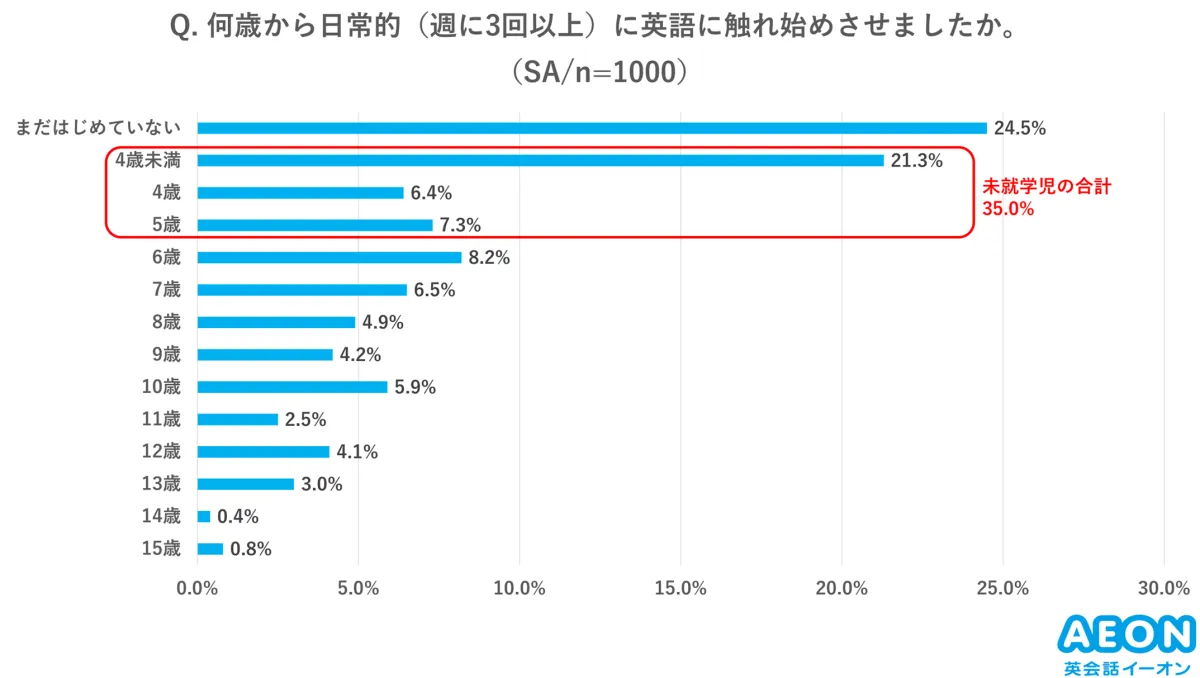
Rising Interest in Early English Education: Investing in Children's Futures
The Growing Trend of Early English Education in Japan
In a recent study conducted by AEON Co., Ltd., a leading English conversation school based in Shinjuku, Tokyo, it was found that a significant number of parents are investing in English education for their children from a young age. The survey gathered insights from 1,000 parents with children aged 4 to 15 across Japan and aimed to explore their perceptions, needs, and attitudes towards their children's English learning.
Early Introduction to English: A Key to Future Opportunities
The findings indicate that approximately one-third of the parents have started exposing their children to English before the age of four. Specifically, 21.3% reported beginning English exposure before their child turned four, and when combined with those who started between the ages of four and five, this figure rises considerably. This reflects a strong awareness among parents about the importance of early English education in enhancing their children's future possibilities.
When asked about their motivations for encouraging English learning, a majority of parents (70.2%) cited the desire to broaden their child's future opportunities as the primary reason. Other motivations included enhancing communication skills (51.1%) and gaining advantages in entrance examinations and job prospects (29.8%). This shift towards recognizing English as a crucial skill for career advancement highlights a long-term perspective on the value of language acquisition beyond immediate academic benefits.
Addressing Challenges in English Learning
Despite the enthusiasm for early English education, the survey revealed parental concerns about their children's perceived difficulty with the language. Over 25% of parents believe that their child struggles with English. Top reasons included: difficulty understanding grammar (50.4%), challenges in remembering vocabulary (41.5%), and issues with listening comprehension (37.3%). This suggests that many parents feel their children may lack foundational skills that could support their learning journey.
The challenge many parents face is a lack of clear metrics to assess their children's language progress. Over one-third reported uncertainty regarding their child's competency in English, indicating potential gaps in communication between parents and educators.
The Shift Towards English Conversation Schools
More than 60% of parents express a desire to enroll their children in conversation schools, showing a notable trend towards practical, interactive language learning environments as opposed to traditional textbook methods. The survey indicated that over 40% of parents currently have their children enrolled in English conversation schools, with the highest enrollment rates among those with children under four years old. This trend reflects a strong inclination among parents to seek hands-on learning experiences and specialized curriculums.
The Demand for English Proficiency Certifications
The findings also highlighted a rising demand for English proficiency certifications; however, paradoxically, over 70% of children do not hold any such qualifications. Approximately 70% of parents acknowledged the importance of certification exams in their child's education. Yet, the majority of parents whose children have not obtained these qualifications raised concerns about how to effectively prepare their children for such tests. This gap points to a significant barrier in the pursuit of English language proficiency, as many parents feel unsure about the best strategies to facilitate their children's learning.
AEON's Commitment to Addressing These Needs
UM AEON’s Educational Division, commented on these findings, noting the need for increased support and clear pathways for achieving English proficiency for students. By employing age-appropriate educational practices that encourage language exposure, AEON aims to alleviate the anxiety many parents experience regarding their child's language skills.
The survey results emphasize the necessity for resources that can bridge the gap between parental aspirations and the current realities faced by their children in English learning. AEON provides inclusive classes tailored to different age groups, ensuring children develop foundational and practical language skills. Furthermore, AEON’s commitment to adapting to innovative teaching methods, such as online courses and ed-tech solutions, positions them to meet the evolving needs of both students and parents.
In conclusion, the growing investment in early English education speaks volumes about parents' intentions to prepare their children for a globalized world, despite the challenges and concerns they face. Through consistent support and effective strategies, it is possible to foster an environment where children not only learn English but thrive in using it confidently in their future endeavors.
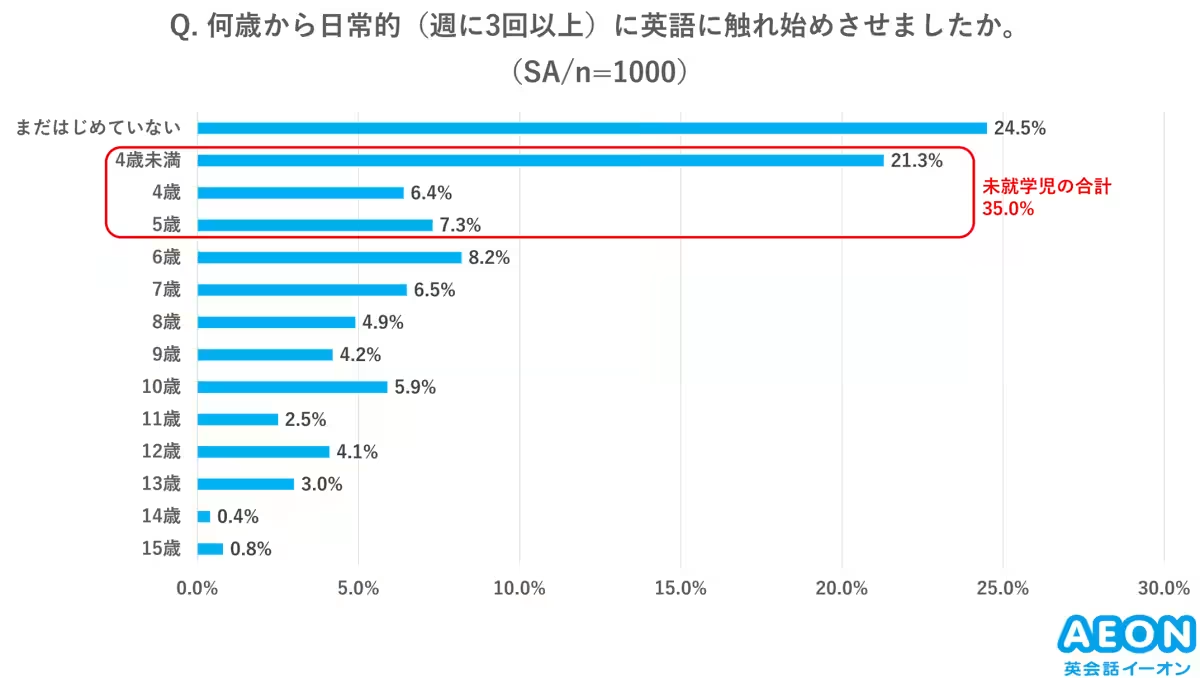
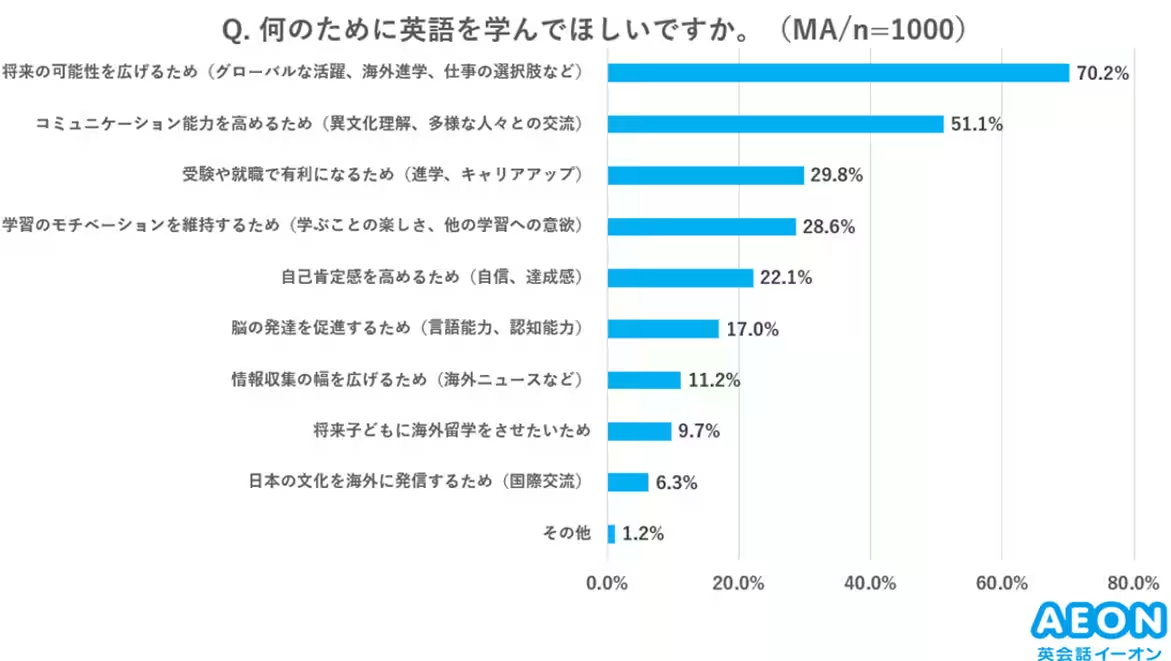
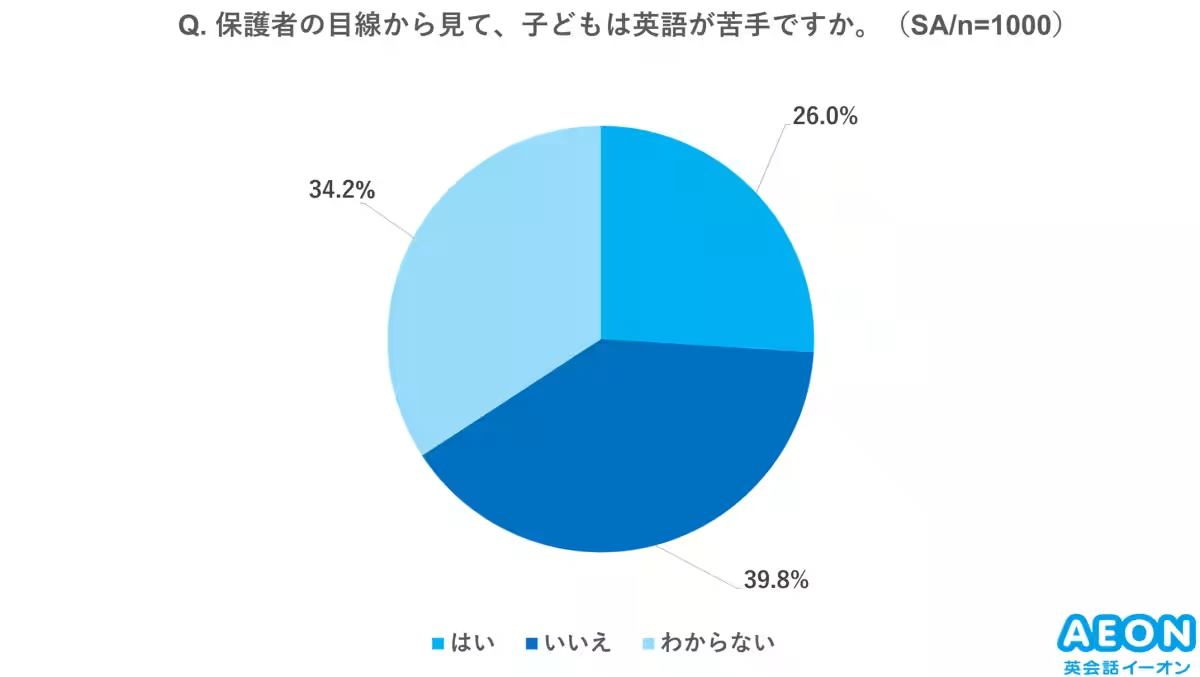
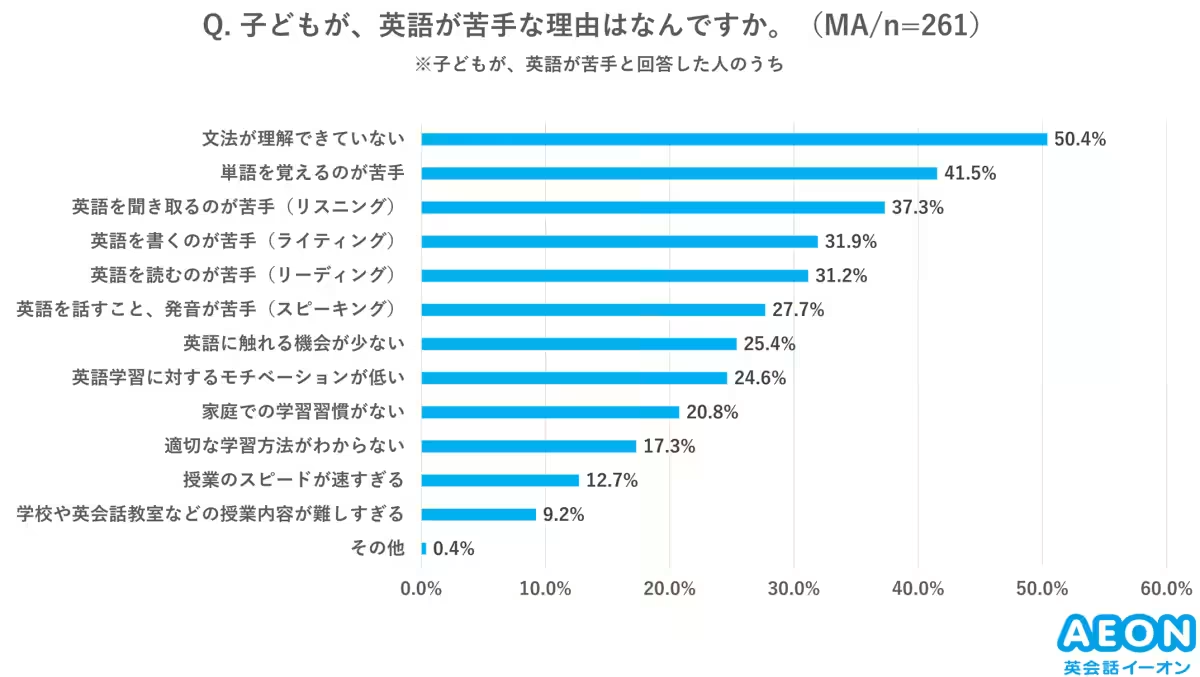
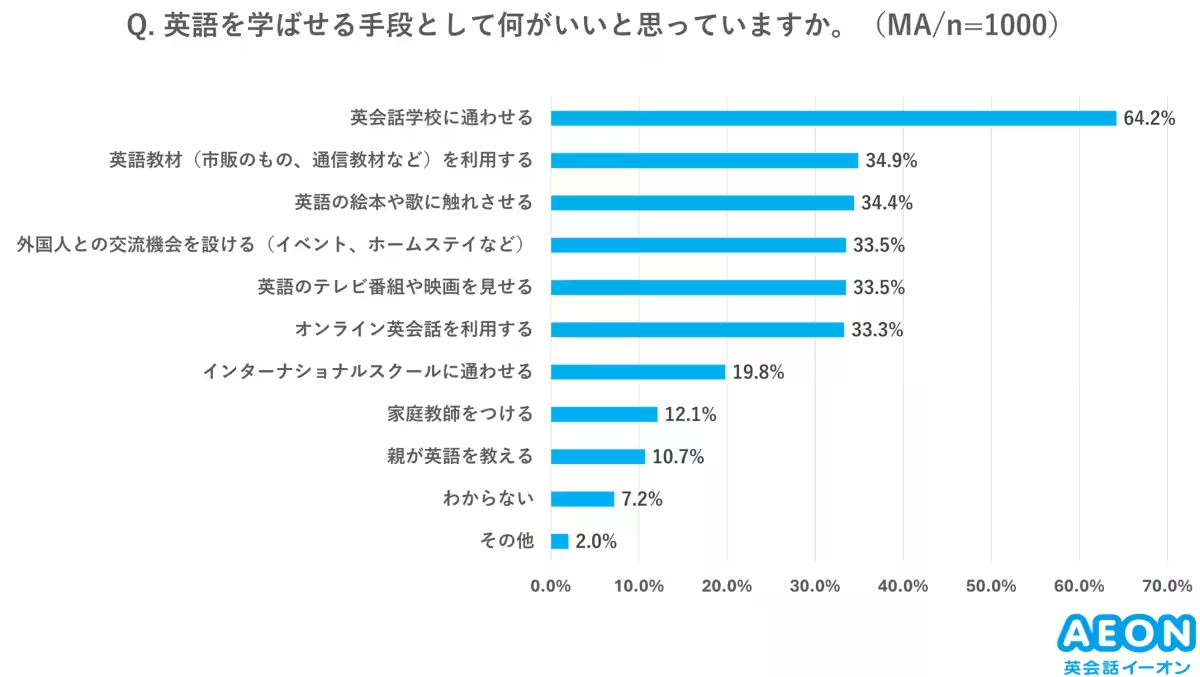
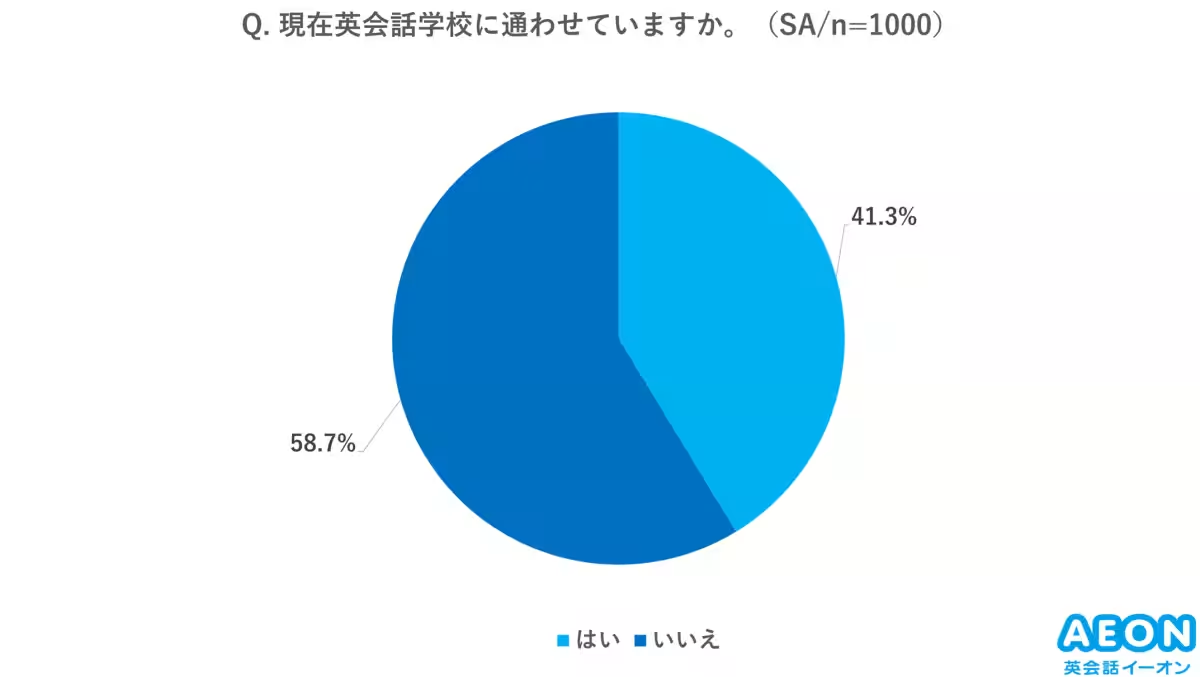
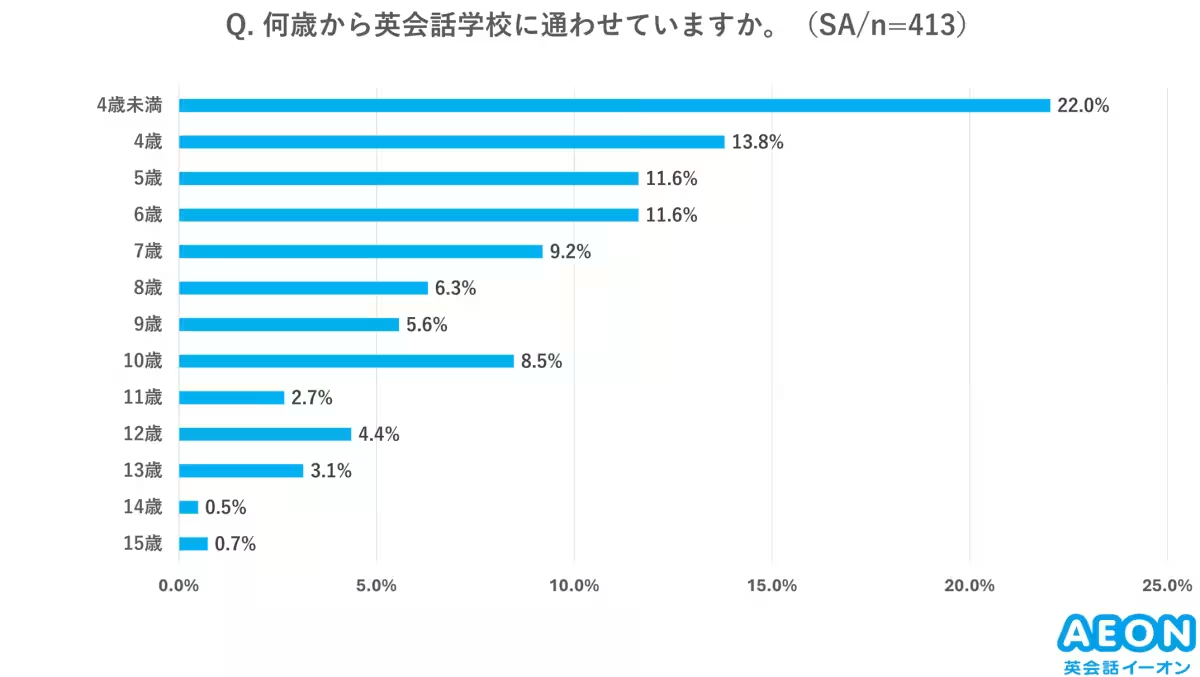
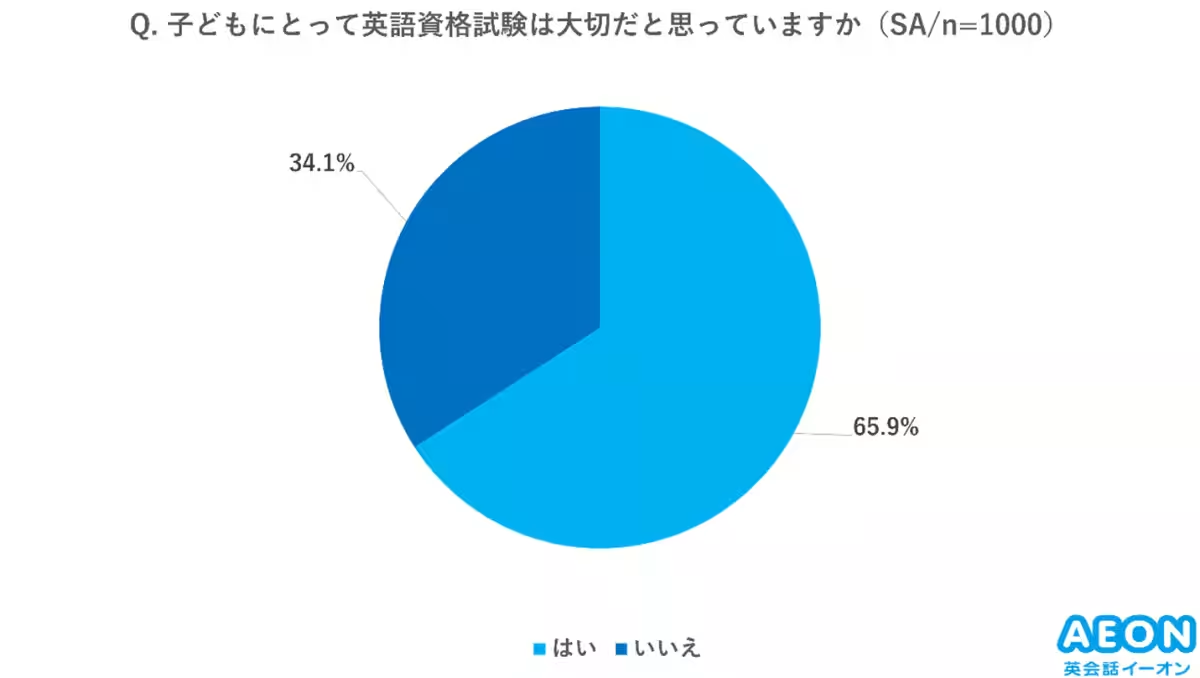
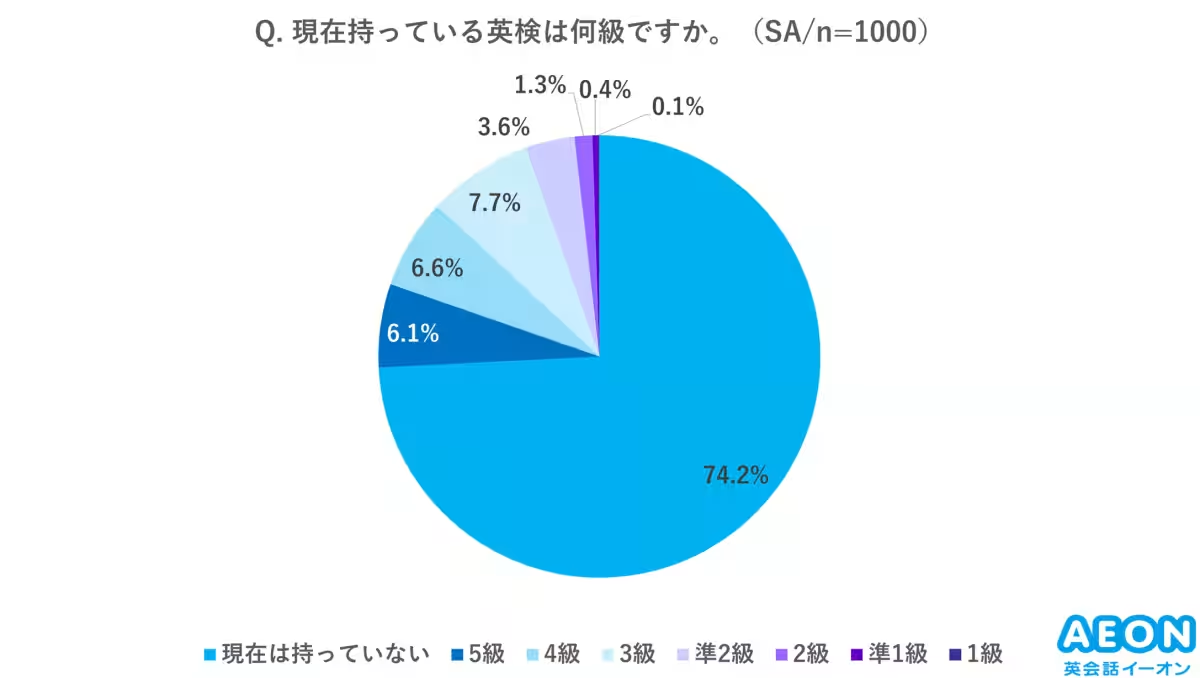
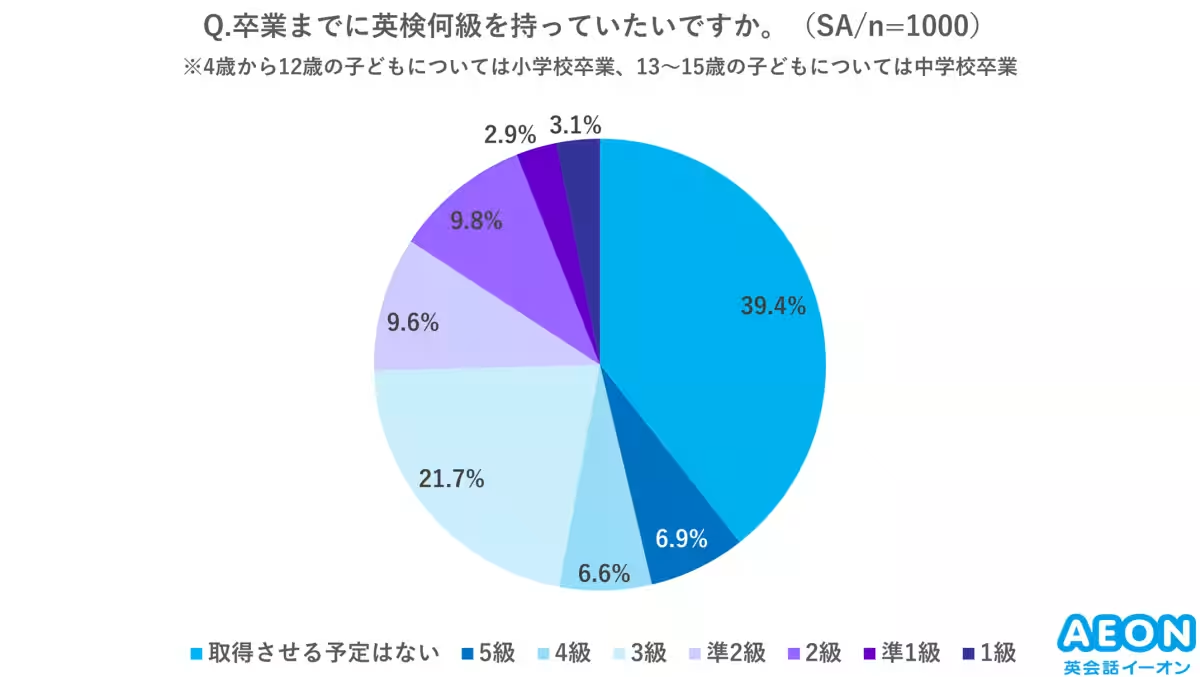
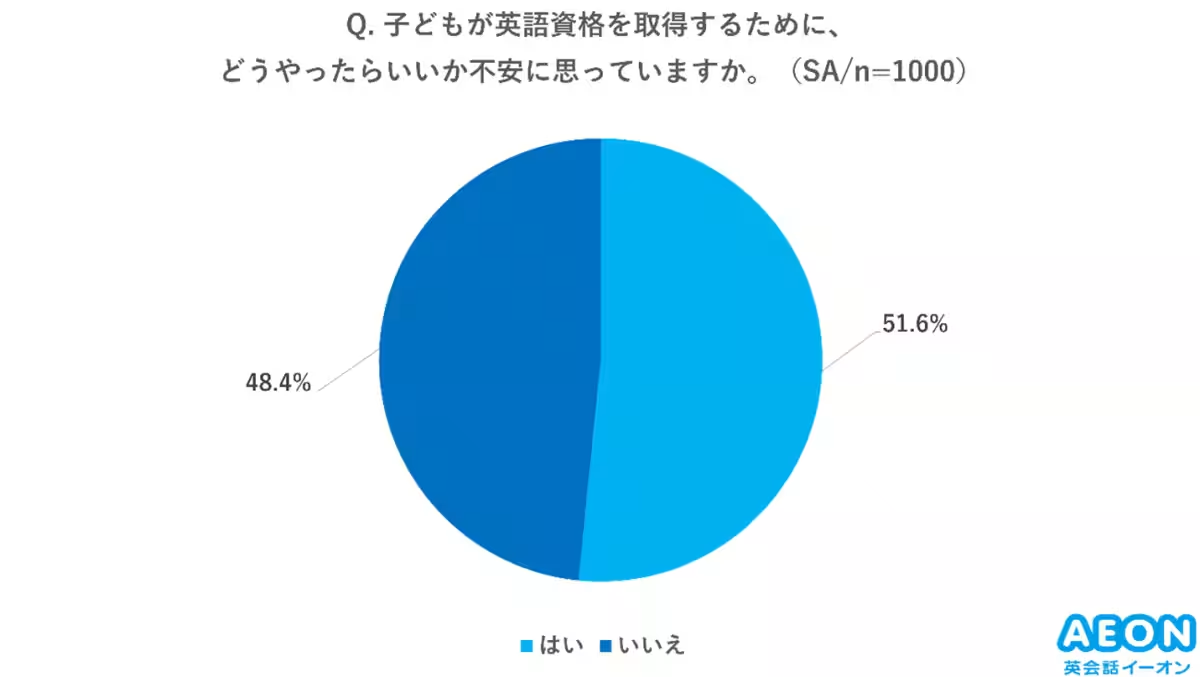


Topics Other)










【About Using Articles】
You can freely use the title and article content by linking to the page where the article is posted.
※ Images cannot be used.
【About Links】
Links are free to use.